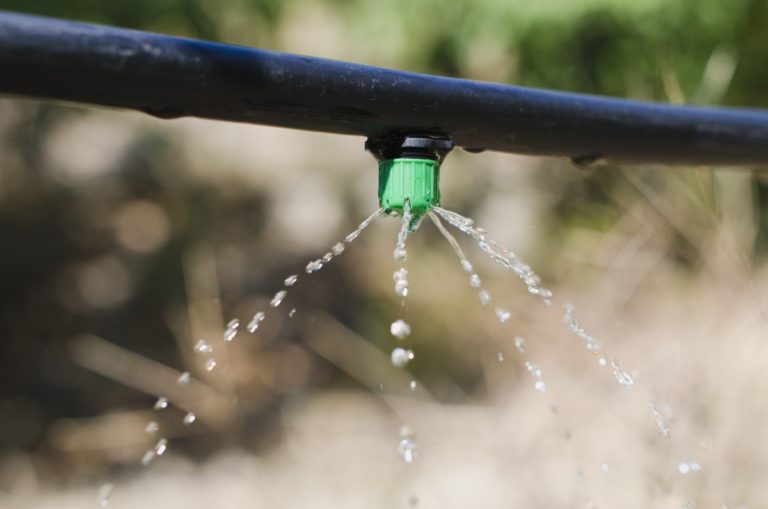Irrigation is always a tricky question. Most people with gardens or front lawns use a sprinkler system but sometimes, sprinklers don’t give the same deep watering effect as hosing or other watering methods do. And let’s face it, nobody really has the time to hose down their entire garden, especially if they’re busy with work and other things.
A good solution to this problem would be to come up with your own irrigation system. Not only that, but you can save yourself the trouble of connecting to a water source by harnessing the power of nature itself and using it to your advantage to naturally irrigate your garden.
How is this possible, you ask? Here are some irrigation methods you have to try:
Catching rainwater
Don’t we all just love it when it rains? It saves us the trouble of having to go outside and water the plants ourselves and saves us on water bills too. Unfortunately, it doesn’t always last, and too much rain could lead to overwatering and root rot. You can, however, take advantage of all the rainwater by catching them with a container of some sort and using that water you’ve gathered to irrigate your garden, especially if you live in a dry and arid area that doesn’t get much rain.
By simply using the rain gutters or storm drains already installed in your house and a water or rain barrel, you can collect that precious rainwater and save both time and money.
All you need to harvest rainwater are your gutters and a downspout, a filter to block any debris, some water barrels to store the water, and a spigot to easily fill your watering can with. Just be sure to install the right filters, get some rain gutter repair done if your gutters aren’t in proper condition, and plug up any holes or seams in your water barrels.
Rainwater is as natural a solution as you can go. Except for some debris and other minuscule particles, rainwater is pretty clean and healthy for your plants and is a cost-effective method too.
Earthworks
Another way you can make the most out of infrequent rain or watering is by using earthworks to change the layout or landscape of your garden so the soil retains as much water as it can before the plants’ roots dry it all up. One method of achieving this is through the smart usage of swales.
A swale is a long, narrow but shallow ditch that you can dig around plant beds and your garden. It’s designed to catch as much water as it can and keep it there for plants to absorb. Think of it as a bathtub more than a drainage system.
Swales are effective for catching water on sloping surfaces or hillsides and distributing it evenly. Swales can also be covered with grass or other things to make it less obvious. You can even use it to make a path or design swale placements in a way that’ll complement your garden’s overall aesthetic. With the right concealment, you won’t even notice that it’s there, apart from a slight slope in the ground. They’re especially useful for growing trees and vegetables.

Mulch
One cost-effective way you can save yourself from watering every day is by spreading mulch over your plant beds. Mulch absorbs any water it comes into contact with and can retain it for longer than regular soil; long enough to allow plant roots to drink up all of it. It also prevents the soil from drying out, keeping it moist for longer than usual.
You can either buy it from your local hardware store or make it yourself out of leaves, bark, straw, wood chips, moss, and other organic materials.
Drip lines
For a fun little DIY project, you can set up a drip irrigation system in your own garden. Drip irrigation allows for more even distribution of water and allows the soil to absorb as much of it as it can. You can make it out of PVC pipes or even old plastic soda bottles. You can hook it up directly to an outdoor faucet or even to your rain barrel.
A drip system is especially useful for automating the watering process. It does all the watering for you! Just turn on the faucet and you’re good to go.
Finding neat, effective, and efficient ways to irrigate your garden is all about creativity. Of course, not all gardens and areas are going to be the same. You might not get a lot of rain in your area or the heat is just too much it dries out your soil in an instant. Find the right irrigation method that works for you and take advantage of your garden’s natural assets to maximize watering. It’s never been easier than this.
